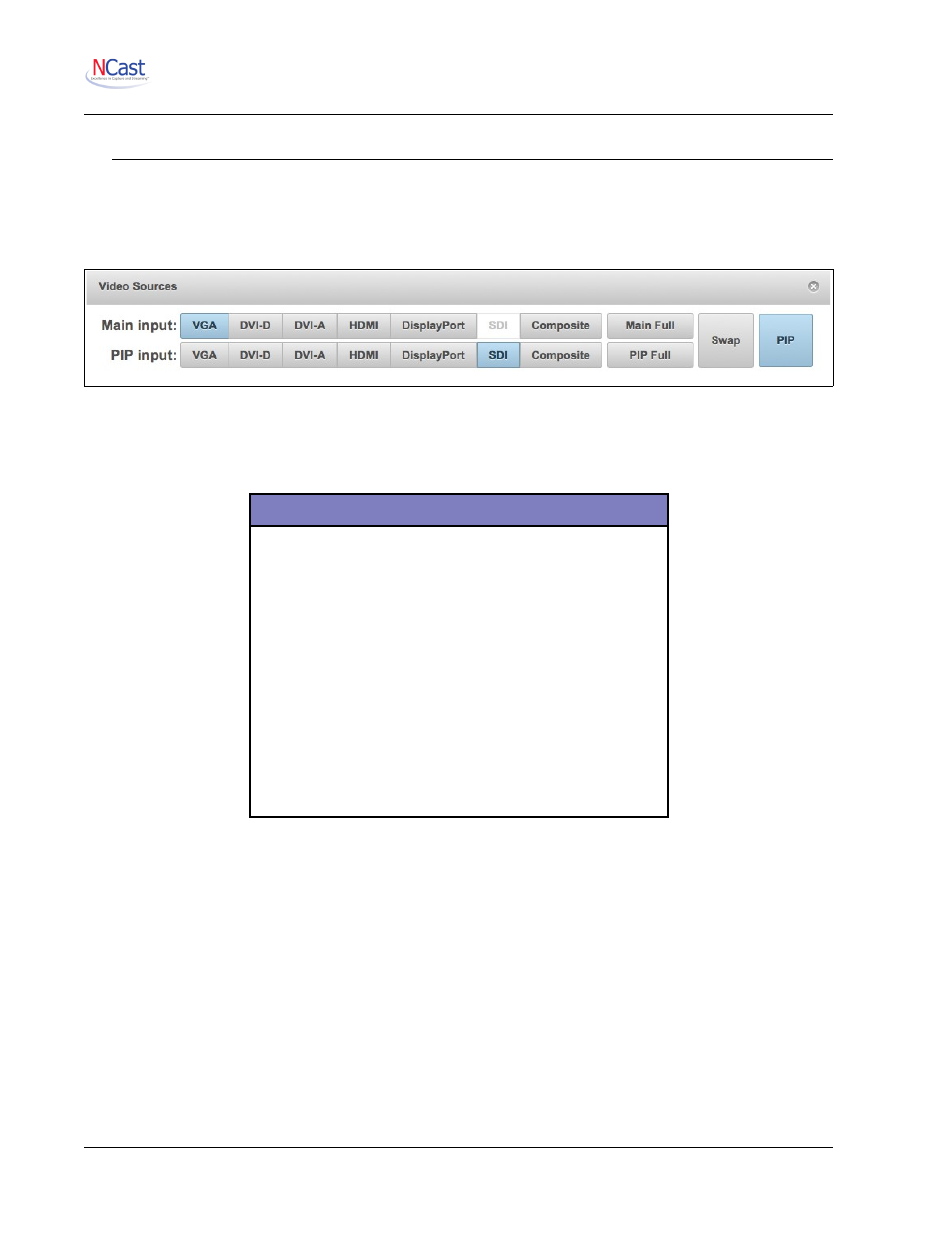Sources, Video – NCast PR-HD User Manual
Page 82

NCast Presentation Recorder Reference Manual
9. Sources
9.1. V
IDEO
The Sources line on the Quick Start page controls what graphics/video or audio inputs will be sent to the
compression engines.
9.1.1. Main input
The user may select one of the following graphics/video sources for capture as the primary image:
Graphics/Video
Input
VGA
RGB analog signals from
the 15-pin VGA connector
DVI-D
Digital RGB signals from
the DVI connector
DVI-A
Analog RGB signals from
the DVI connector
HDMI
HDMI signals
Displayport
Displayport In
SDI
3G-SDI serial digital
Composite
NTSC or PAL video from
the composite (BNC)
connector
The DVI input is compatible with the DVI 1.0 specification and the VESA DCC/EDID 1.3 specification. The
required interface cable is a DVI-D (Single Link Digital) or DVI-I (Combo Analog and Digital) or DVI-A
(Analog RGB). A DVI-D (Dual Link) cable is also acceptable.
The Main Full or PIP Full expands the image to fill the entire screen.
The Swap button is used during Picture-in-Picture (PIP) setups. The Main and PIP inputs will be exchanged
when the button is toggled. For example, if a video PIP was overlaying a graphics background, pressing the
Swap button will result in a graphics PIP overlaying a video scene.
9.1.2. PIP Input
The user may select a graphics or video source for capture as the secondary image, which may be
positioned inside of and thus overlay the Main image (picture-in-picture, PIP) or the secondary image may be
placed adjacent to and outside the Main image (picture-out-of-picture, POP, side-by-side). The following
table shows Main/PIP combinations which are available:
NCast Corporation
Revision 2.2
Page 82
